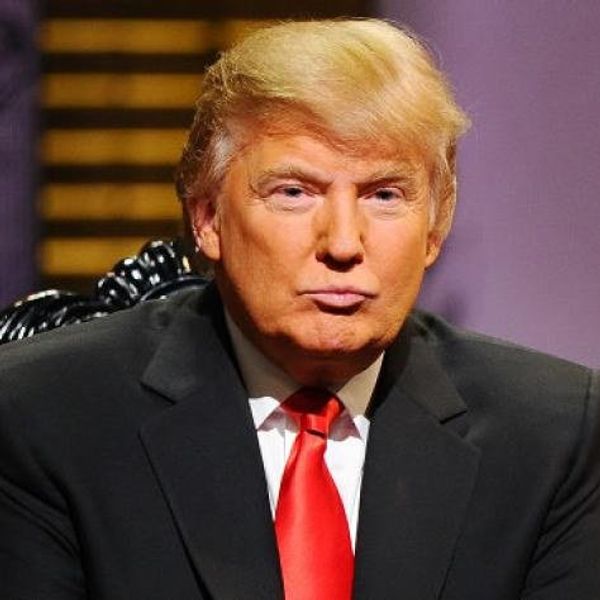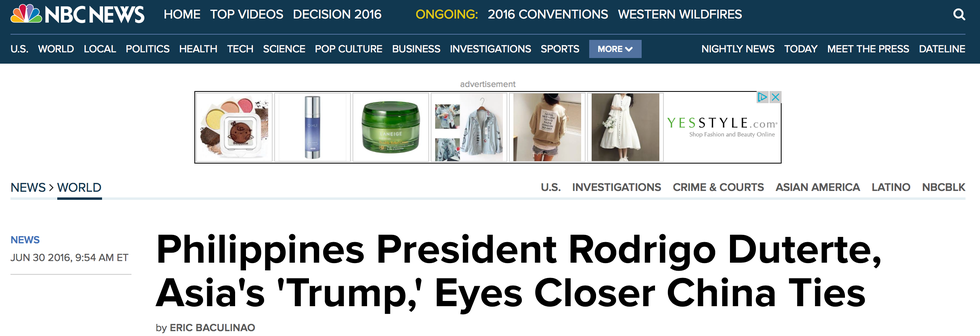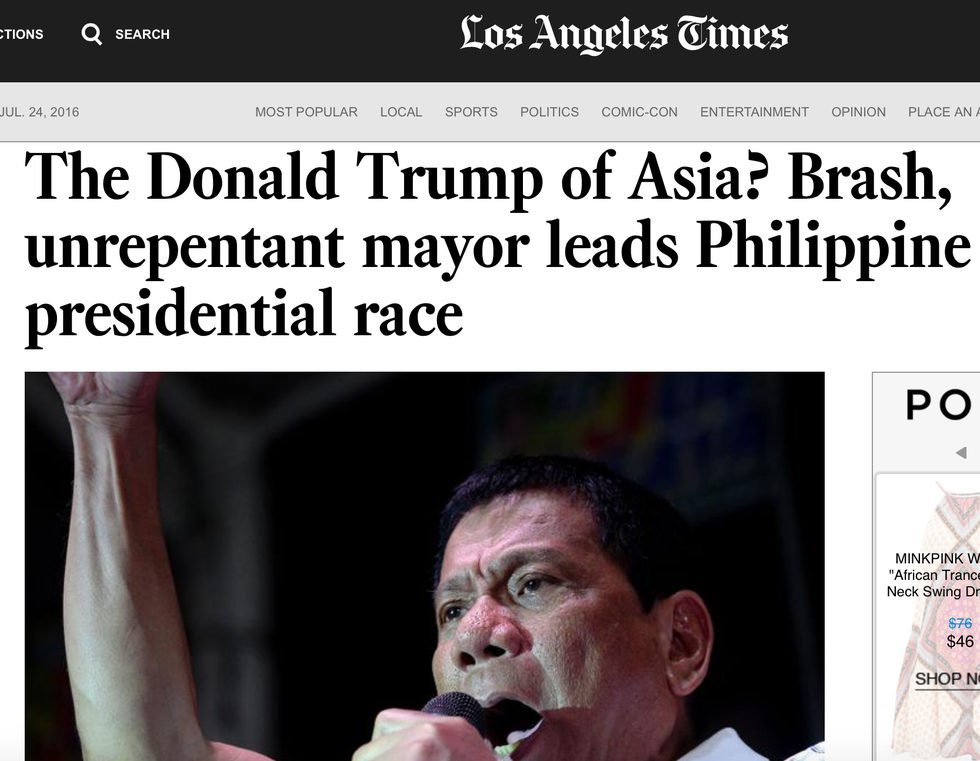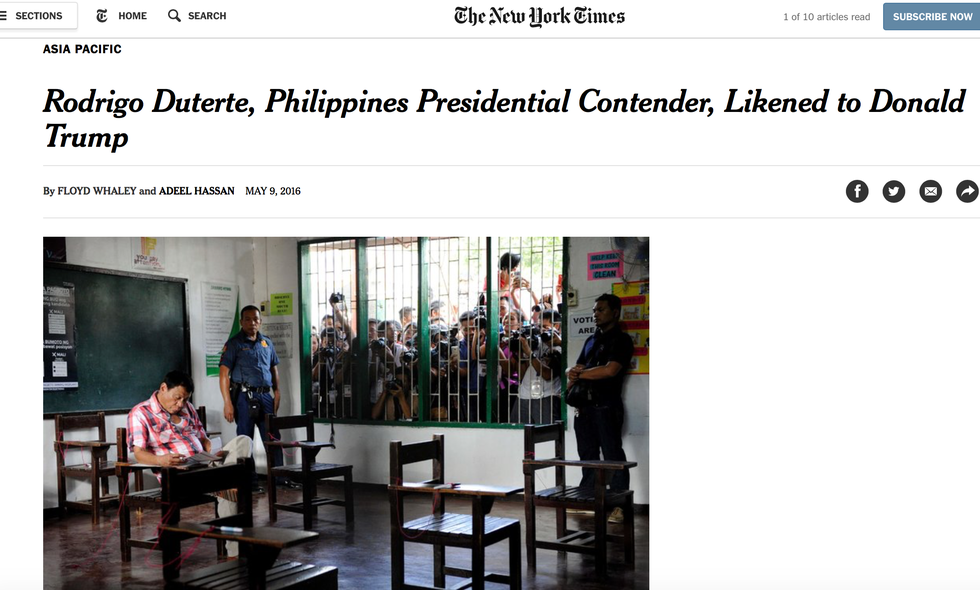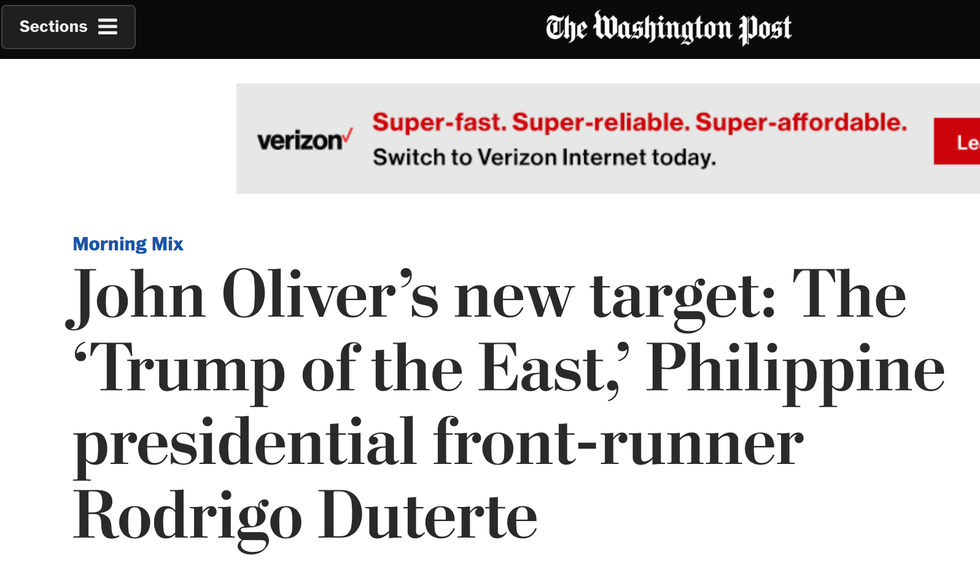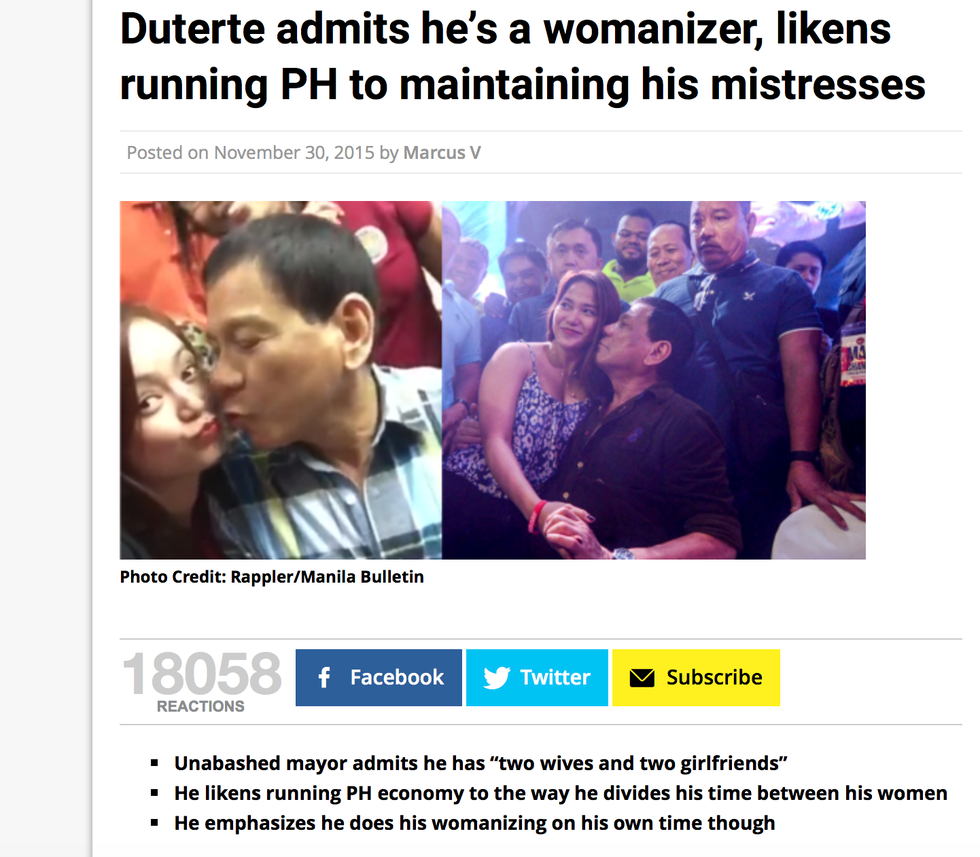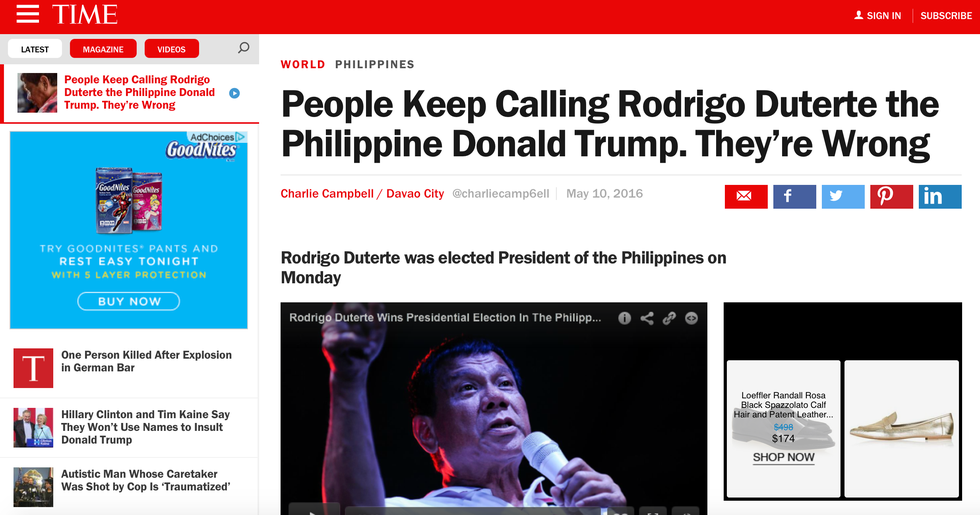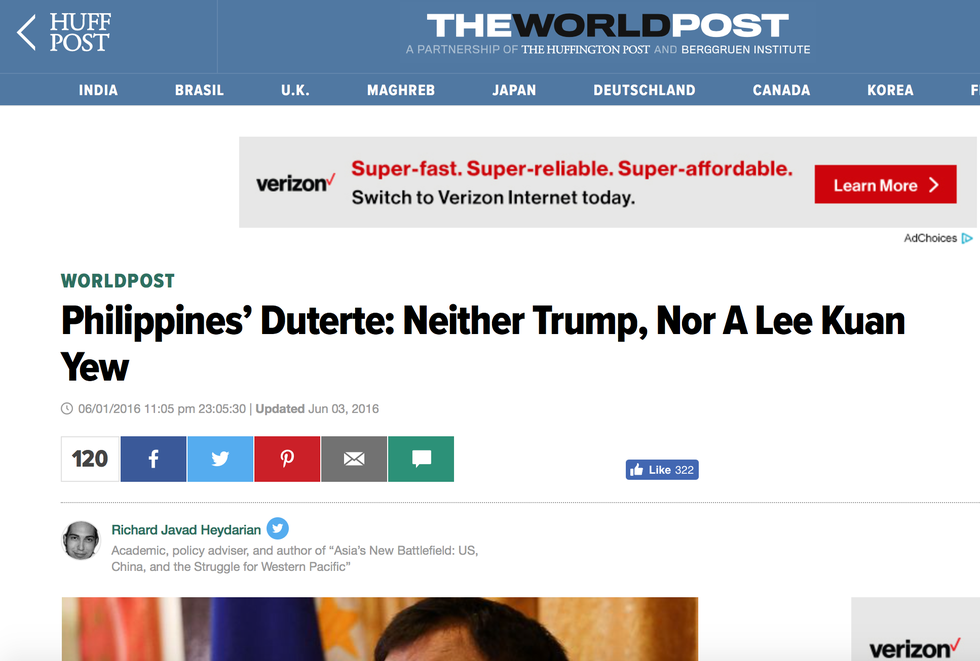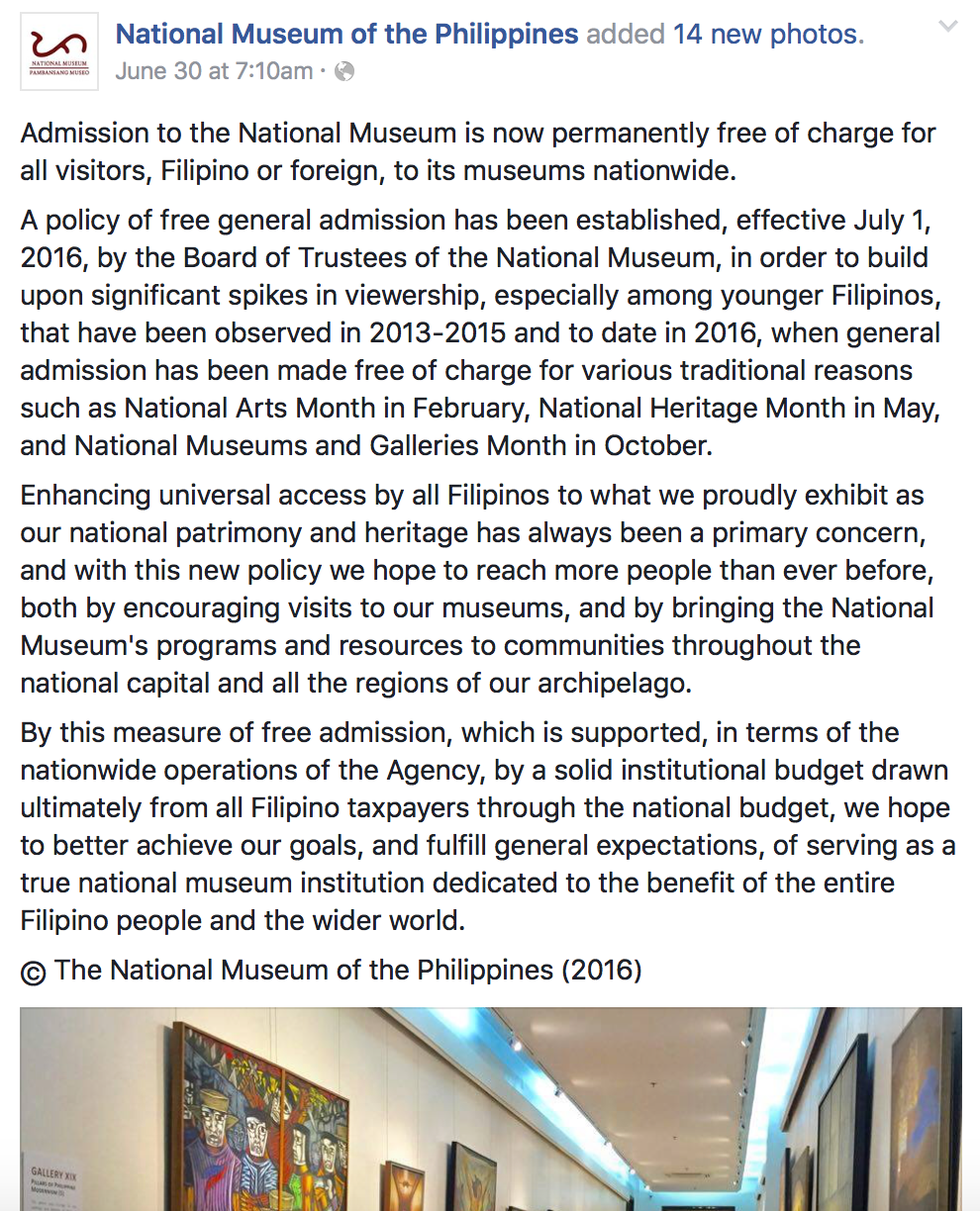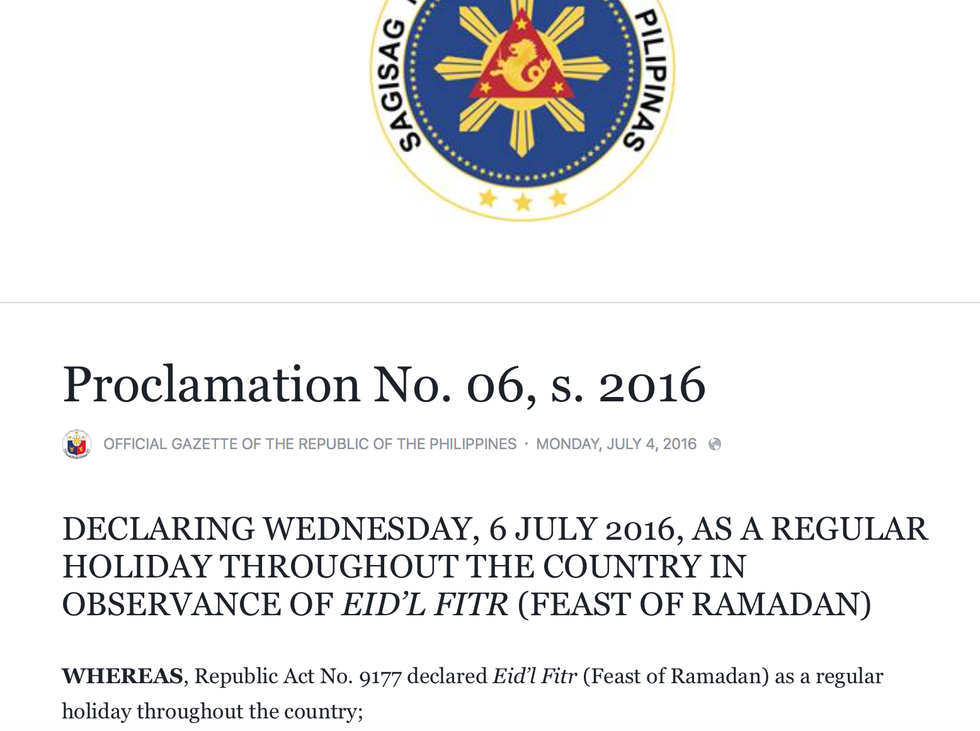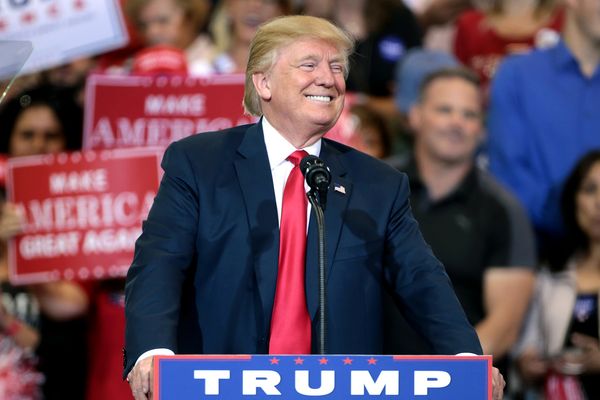On June 30, 2016, former mayor of Davao City, Rodrigo Duterte was inaugurated as the Philippines' 16th President. Duterte won the Philippine presidential election in May. It just so happens that the Philippine presidential race coincided with the United States' presidential nominee race. Back in the U.S., Republican presidential nominee (then Republican presidential front-runner) Donald Trump was taking the media by storm with his outrageous rhetoric (think his proposal to build a wall at the Mexican border, as well as other statements he's made) beating the rest of his Republican opponents in the battle for media coverage. While Trump was making headlines in the U.S., and abroad (I actually saw presidential race coverage of Trump on a magazine while I was in Milan), Trump was making headlines in the Philippines.
International media outlets took notice of Duterte's similarly outrageous campaign rhetoric (think him joking about gang rape) and immediately named him the "the Philippine's Trump", even "Asia's Trump" or "The Trump of the East".
When he won the presidential race, international media condemned the Philippines to the end of the world.
To be honest, I was even a little worried. My parents followed the Filipino election closely. Of course, they would. They have family still living in the country and they are obviously worried for their own welfare. With their enthusiasm in keeping up-to-date with Philippine politics, I also followed Philippine news outlets to check on the election.
When the Philippine election process had first started, Duterte was not mentioned at all. The next time I heard about Duterte, he was making waves in the media with his infamous gang rape joke. He continued with his unapologetic, outrageous rhetoric, like his admission that he has mistresses.
(yah, that happened. Not exactly the clean, family man image that American presidents live on)
While I was trying to make up my mind on how I felt about Détente, I met Filipino students at my school who showed positive support for the former Davao City mayor, especially for his promise of instilling federalism into the Philippine government and promising to bring jobs out of the overcrowded nation's capital, Manila. While many media outlets, even within the Philippines, were immediately condemning Duterte as another Trump, some correspondents were willing to look more closely at the new Philippine president.
One thing that both these article got right was that Duterte wasn't just 'anybody' that joined the Philippine presidential race. For over two decades, Duterte stood as mayor of Davao City. (For a decade before his stint as a mayor, he was already working in public office.) During his stint as mayor of Davao City, he successfully changed the former murder capital of the Philippines into "the most peaceful city in Southeast Asia". (Although he has drawn criticism for his supposed Davao Death Squad and their apparent extrajudicial killings of petty criminals and drug dealers.) Nonetheless, he's a seasoned man of the public office, and his current accomplishments as the newly minted Philippine president hold to prove that.
1. He's made general admission to the National Museum of the Philippines free.
This is important, because, as one of my history teachers had told me, we study the past to learn from our mistakes and make sure they aren't repeated. I think of this as a pretty important lesson considering that history has proven to be cyclical and that life occurs through cause and effect. As so, how is a citizen able to make well-informed decisions without having any access to information. Making the Philippines' national museum free to a population with around 30% of the population being surveyed as falling below the poverty line is an important step to aiding the public.
2. In recognition of the present Muslim population in the approximately 88% Christian nation, Duterte signed an executive order in the Philippine version of the White House, Malacañang, that July 6 is a non-working holiday in honor of the Muslim tradition of Eid’l Fitr.
Duterte is known to be supportive of the Moro Muslim minority in the Philippines. He's been fighting to support greater national unity by backing the Moro Muslim community.
3. Probably, most important, Duterte finally ended "tanim bala" [plant bullet] / "laglag-bala" [drop bullet]
For a little background of this charade, basically, the main airport of th Philippines' national capital Manilla, Ninoy Aquino International Airport, faced controversy since September 2015. Security personnel of the Philippine airport had been planting bullets in unsuspecting airline passengers as a means of extorting money. The airport security personnel would offer a fine to the airline passengers to avoid questioning and detention and then pocket the fine money for themselves, therefore making money for themselves.
Duterte ended the continuation of the extortion scheme by instructing the Aviation Security Group not to arrest, detain, or file charges against passengers who are found with bullets in their luggage.
These are just 3 of Duterte's accomplishments as President of the Philippines.
In conclusion, Philippine President Rodrigo Duterte may seem similar to Donald Trump in his outrageous rhetoric, but he's not another Trump. Although, his first state of the union has incited some controversial results.
Nonetheless, Duterte's a seasoned public official who has provided substance behind his seemingly empty words. He's created action that has proven that the country is in safe hands. In addition, he has three decade long track record in public office to prove that he's more than worthy to serve the Philippine people. Experience in public office that Trump doesn't have.
Like Time Asia Correspondent Charlie Campbell stated in his article People Keep Calling Rodrigo Duterte the Philippine Donald Trump. They're Wrong: "The Philippines knows what it is getting. With Trump, America is looking at the unknown."

